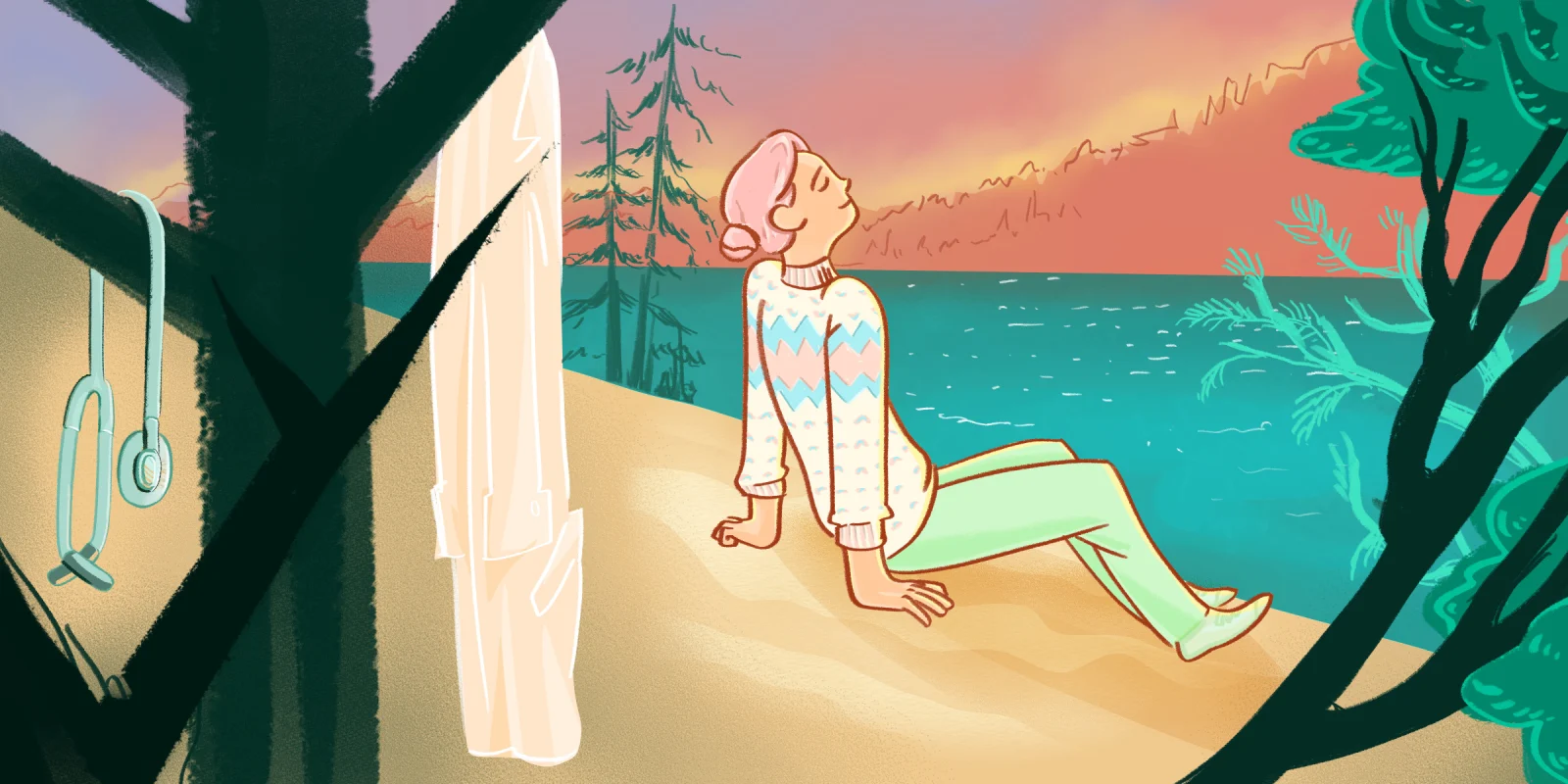I went to see my doctor today, and they obtained my vital signs per normal routine. Weight: same. Height: same. Blood pressure: not the same. My blood pressure was unusually higher than my standard 120/80. This time it was up to 150/95, not my usual. They took my pressure again, this time with a larger cuff, but it didn’t budge. I thought it would be lower. Per the usual course of care, we proceeded with an assumption that I was tired or had more caffeine – neither of which were true. I’ve had my blood pressure taken after a call night or longer several times, at which time no one was surprised that it was elevated. And the same thing happened – we all shrugged it off. This time, however, the hypertension didn’t sit easy with me.
As overthinkers often do, I ruminated on it. There are several reasons I might have higher pressure this time – stress, increased work responsibility, another foster/adoption, etc. My brain focused on all the other times I had hypertension when I was sleep-deprived and overly exhausted from working a shift. With the hypertension also comes the physical ailments. I don’t check my own blood pressure outside of a doctor’s office, yet I can physically feel the hypertension, usually on my post-call days. The pounding heartbeat and pulse. The throbbing eardrums. And the nausea, which rears its ugly head on stretches of 36-plus hours.
My life is anything but slow most days. Ask those who know me and they will tell you I am always busy doing something. Part of it is a need to be constantly moving and doing, and part of it borders on a feeling of missing out. After spending my 20s training to become a full-fledged physician, I find that I often stretch myself because of an inner need to “catch-up” to my non-physician peers. My 20s weren’t devoid of adventures, but we did delay having children and settling down in a home base for longer than a few years. There may only be 24 hours in a day, but I am always looking for ways to stretch that time through efficiency and scheduling.
Recently, I listened to episodes from the podcast The Happiness Lab centered around rest. In one, the host interviews Sarah Hurwitz, a former speech writer for Hillary Clinton and Michelle Obama. Her career kept her very busy and exhausted, which led her to study Judaism, specifically the commandment to rest. Through intentional practice, even while working at the White House, she practiced Shabbat (the day of rest), let go of control over her world, and found more gratitude and more connection. Through her practice, she was able to explore her desires and how she normally compensated for exhaustion. A day of rest is required (on average) for residents and fellows, but this gets lost for various reasons upon graduation. However, those who can slow down and rest often feel as though they have more time even though the number of hours in a week remains the same. The feeling of having more time, or “time affluence,” occurs because they know that rest is carved out for them every week.
My oldest has taught me many lessons through the years, and that includes a lesson on the consequences of exhaustion. As many parents know, a child who doesn’t get enough rest or becomes overly tired will make you pay for it the next day. Early childhood and early elementary programs have rest and play built into the daily schedule because of the inherent need for revival and restoration that play and sleep provide.
As we move along in school, naps are eliminated and play time reduced. Twice a day playground time is reduced to once a day. In the later years, gym class is reduced to a couple hours each week and time spent sitting at a desk increases. Your average high schooler gets to stretch their legs for a few minutes between classes or on approved trips to the bathroom. The transition is so gradual that we don’t notice the loss of play and rest time. We are working toward adulthood, after all, when our time will be filled with obligations (and hopefully some time to exercise).
The concept of time affluence is explored further in another episode of The Happiness Lab in which the host interviews Tom Hodgkinson, a self-proclaimed professional idler, and Ashley Whillans, a researcher who explores the concept of time. Tom takes time to just experience, be, visit friends, or nap. Whether we have time affluence or the opposite, time famine, depends on our own subjective feeling of whether or not we have a decent balance between time and tasks. Task switching, even a quick look at your phone, can interrupt rest time, creating more fatigue. Through our decisions of how we spend our minutes each day, we can create time affluence, which has been shown to lead to more happiness and gratitude.
If you have ever attempted to teach a young child about time, it’s really an abstract concept. The numbers on our watches and the hands of a clock make it feel concrete. However, an hour to a child could feel like five minutes when they’re enjoying themselves, yet their parent wants to move them along to a not-so-fun activity, like bedtime. As an adult, I live by my calendar. As a child, my kid lives by the sun – when it’s up, she’s up. If she is determined to put on her shoes, she doesn’t care if I am in a rush and can’t wait the extra 10 minutes for her to do it herself. Her day is dominated by rest and activities that bring her joy. By comparison, my day is dominated by my 15-minute-interval Outlook calendar and the notifications on my phone.
So, what can we do about it? Take the pulse of your life-rest balance. Schedule idle time or observe a day of rest. Make sure to use your vacation time – even if it means idle time at home. You will likely feel happier and may even be more productive. Personally, I will take a note from my kids to devote some time for relaxation or rest. Especially on post-call days, when my blood pressure is likely elevated, you can find rest time scheduled into my calendar.
What do you do with your rest time? Share your favorite way to recharge in the comments.
Dr. Eleanor Gradidge is a pediatric intensivist in Omaha, Nebraska. She is passionate about providing care to both her patients and their families. In her free time, you will find her enjoying the outdoors with her family in any way possible. Dr. Gradidge is a 2022–2023 Doximity Op-Med Fellow.
Illustration by April Brust







